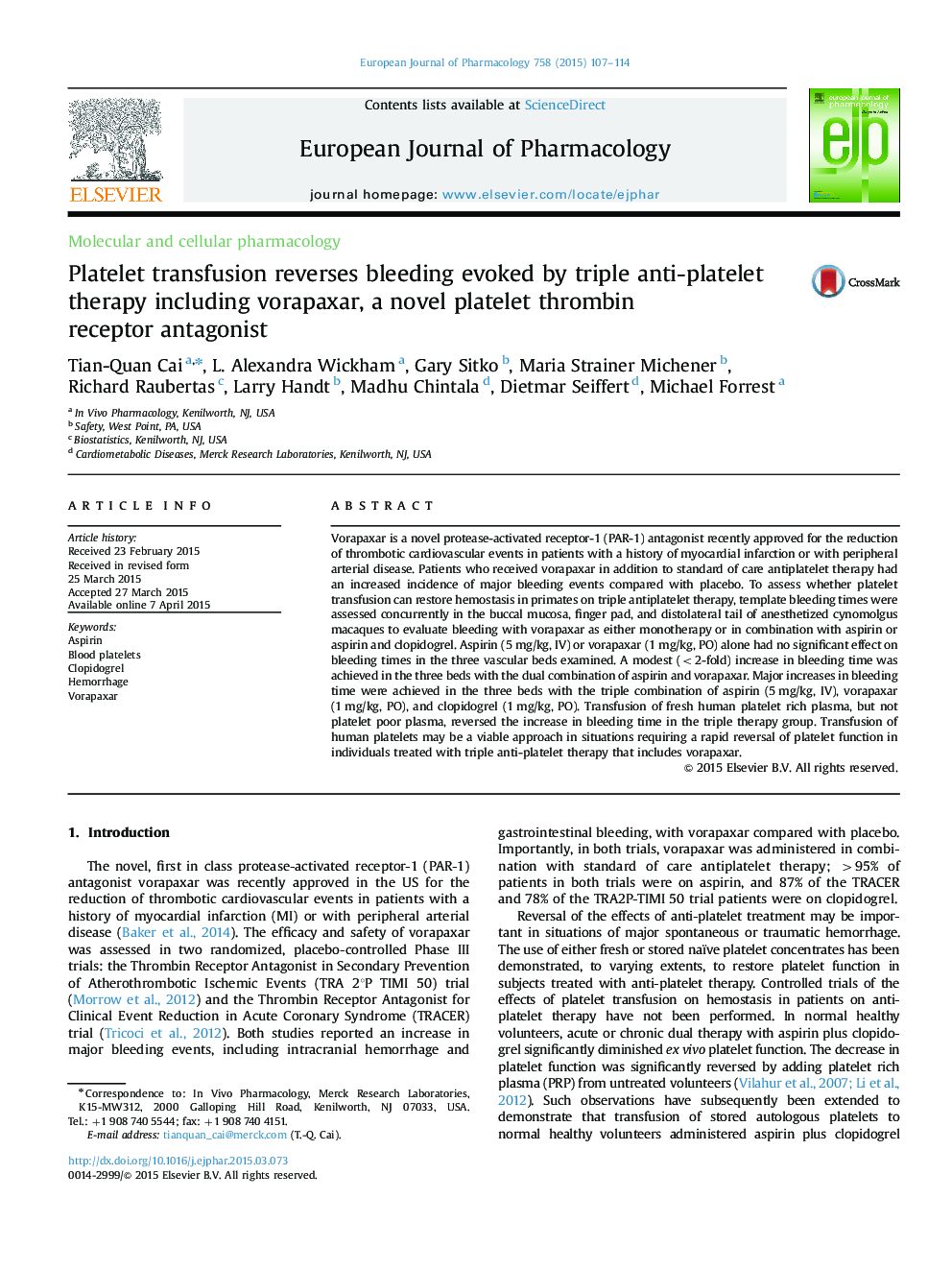| Article ID | Journal | Published Year | Pages | File Type |
|---|---|---|---|---|
| 5827345 | European Journal of Pharmacology | 2015 | 8 Pages |
Vorapaxar is a novel protease-activated receptor-1 (PAR-1) antagonist recently approved for the reduction of thrombotic cardiovascular events in patients with a history of myocardial infarction or with peripheral arterial disease. Patients who received vorapaxar in addition to standard of care antiplatelet therapy had an increased incidence of major bleeding events compared with placebo. To assess whether platelet transfusion can restore hemostasis in primates on triple antiplatelet therapy, template bleeding times were assessed concurrently in the buccal mucosa, finger pad, and distolateral tail of anesthetized cynomolgus macaques to evaluate bleeding with vorapaxar as either monotherapy or in combination with aspirin or aspirin and clopidogrel. Aspirin (5Â mg/kg, IV) or vorapaxar (1Â mg/kg, PO) alone had no significant effect on bleeding times in the three vascular beds examined. A modest (<2-fold) increase in bleeding time was achieved in the three beds with the dual combination of aspirin and vorapaxar. Major increases in bleeding time were achieved in the three beds with the triple combination of aspirin (5Â mg/kg, IV), vorapaxar (1Â mg/kg, PO), and clopidogrel (1Â mg/kg, PO). Transfusion of fresh human platelet rich plasma, but not platelet poor plasma, reversed the increase in bleeding time in the triple therapy group. Transfusion of human platelets may be a viable approach in situations requiring a rapid reversal of platelet function in individuals treated with triple anti-platelet therapy that includes vorapaxar.
